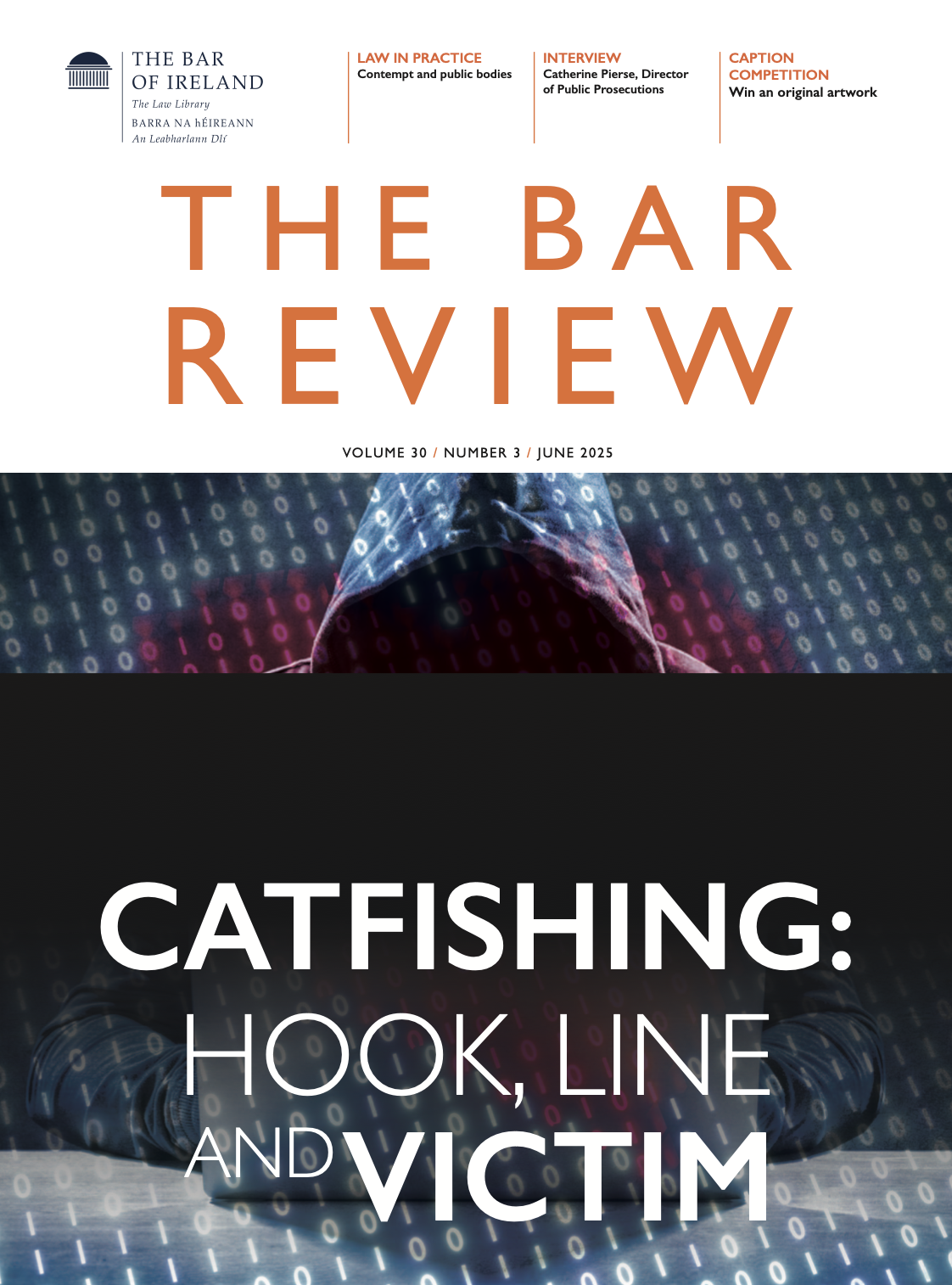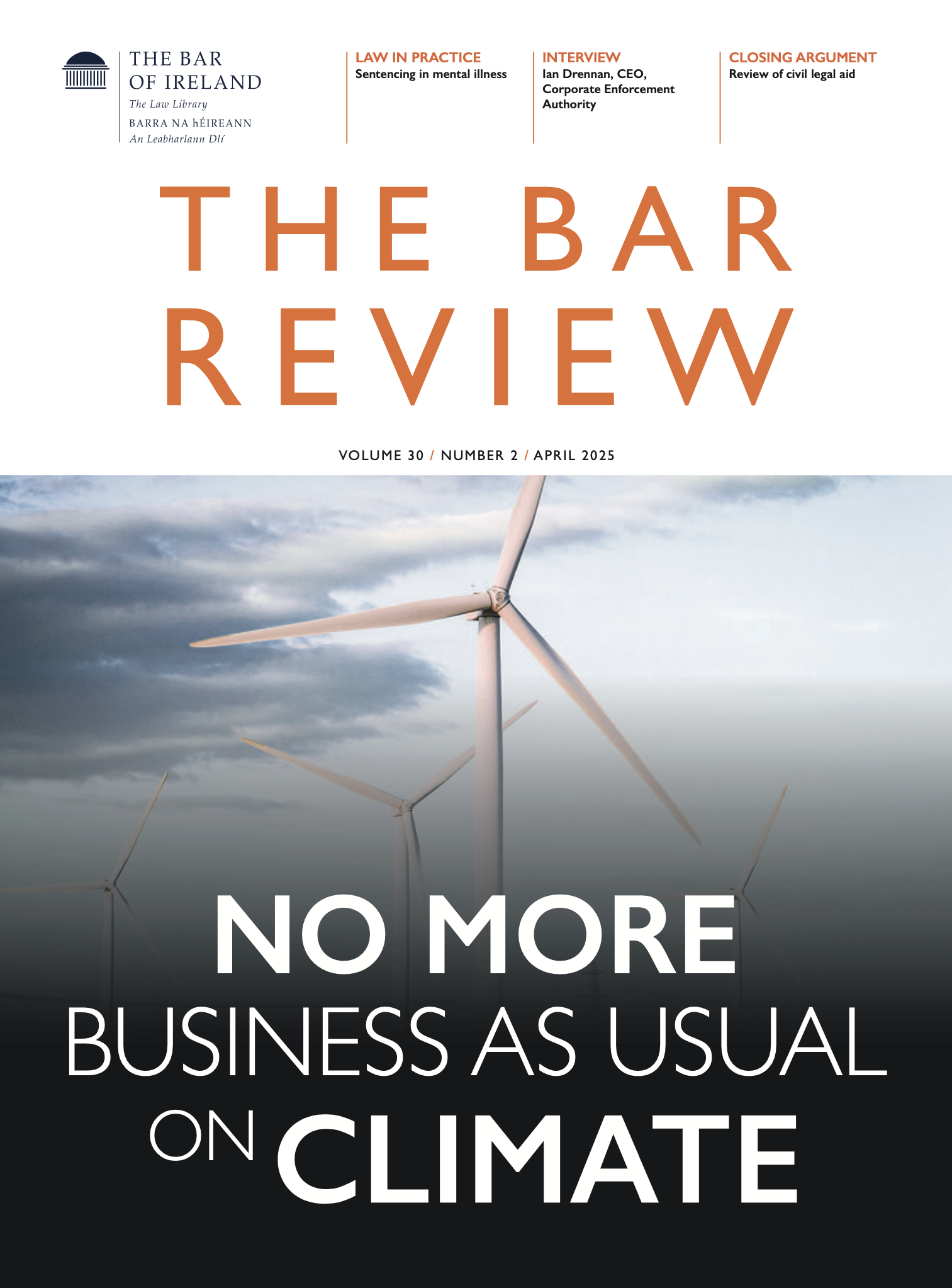The June issue of The Bar Review includes a feature interview with Susan McKay, Press Ombudsman on her career and the challenges facing traditional media, a comparison on law and policy on defective buildings between Ireland and the UK, a focus on the Garda Youth Diversion Programme and an examination of the intersection of religious speech and free speech.
Highlights from June Issue
Idealism in Action: Interview with Susan McKay, Press Ombudsman

Press Ombudsman Susan McKay spoke to The Bar Review about her career in journalism and advocacy, the role of the Press Council and Press Ombudsman, and the challenges currently facing traditional media.
Press Ombudsman Susan McKay brings to her role a wealth of experience both as a journalist, and as a community and women’s rights activist and advocate. Originally from Derry, she entered her teenage years just as the Troubles were getting underway and says that this very much informed her eventual decision to become a journalist: “I grew up becoming more and more aware that I lived in a city that was called Londonderry, which was sort of the same as the city that was called Derry, but wasn’t the same. It’s very confusing to grow up in such a place, especially when you find that you don’t necessarily fit in terribly well with the community that you happen to have been born into. It was a complicated background to come from”.
Defective Buildings: UK and Irish Approaches

Recent changes in the law, particularly resulting from tragedies such as the Grenfell Tower fire, have meant that law and policy in the UK and Ireland on remedies for defective buildings have diverged significantly.
UK and Irish law was reasonably well aligned in relation to liability for defective buildings until recently. While the essence of private law approaches to remedies for defective buildings has remained fairly similar, the legal and policy responses to the discovery of defective buildings in the two jurisdictions now diverge significantly.
Juvenile Justice

By James McGowan SC and Sarah Jane Judge BL
The Garda Youth Diversion Programme exists to support the diversion of young offenders from criminal prosecution in Ireland. A number of recent issues have arisen in respect of the Programme, which are of interest to practitioners.
Diversion of young offenders from the formal criminal justice process is a fundamental component of all modern youth justice systems. Diversionary models and mechanisms seek to counteract the child’s criminogenic orientation, which may arise from his/her involvement with formal criminal justice institutions, agencies, and processes. Furthermore, the informal, community-based and often restorative justice ethos of many diversion programmes can assist in addressing the underlying factors that contribute to young offending.
Speaking Freely?

The creeping criminalisation of aspects of religious speech in Ireland may mean that society’s ‘offence’ will write individual criminal records.
A rare redemptive element of the injustices of the past is the possibility of utilising history’s lessons to avoid traversing the same ground again. The contribution of the Irish story to the annals of historical wisdom was costly and its importance cannot be underestimated. The story tells of the misuse of the law, which in the right hands acts as an effective tool for the protection of rights and imposition of responsibilities. Instead, legislation commonly referred to as the ‘penal laws’ were used to repress a significant portion of the Irish population.
Download The Bar Review – Volume 28 Issue 3

